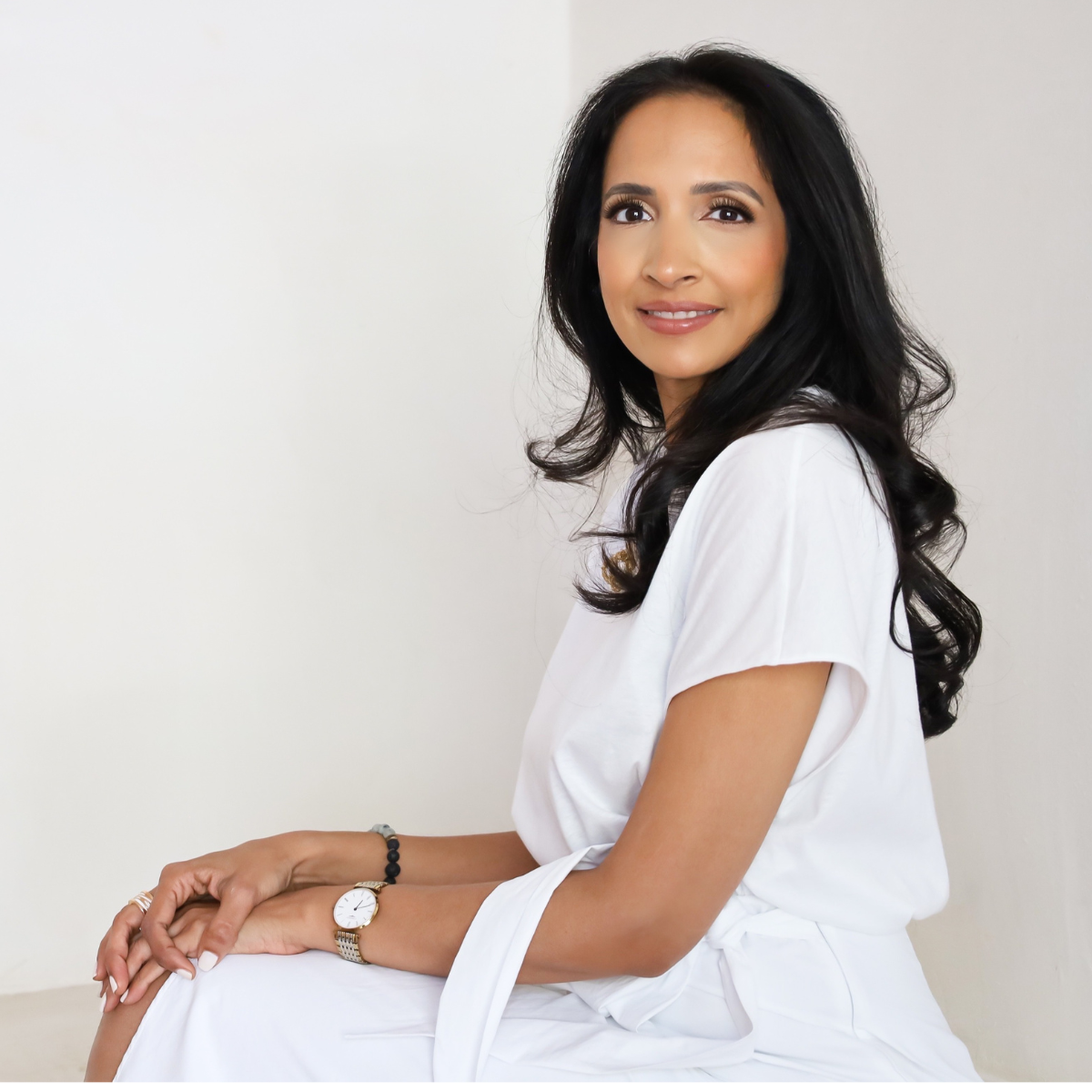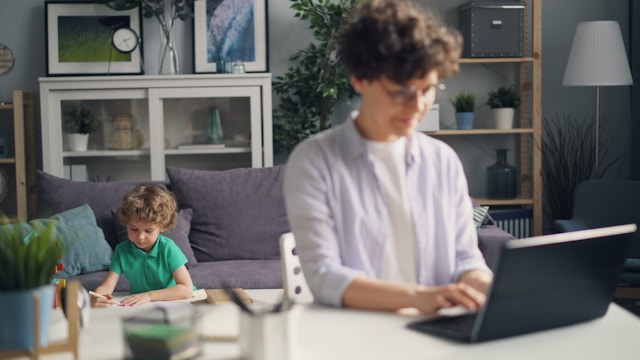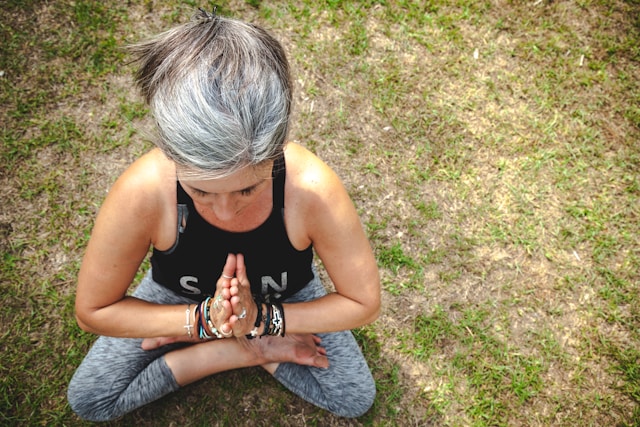Breaking the Cycle of Overwhelm
Stress and anxiety have become so normalized that as women, we barely notice the weight we’re carrying. Between careers, caregiving, relationships, and life’s endless demands, it’s easy to fall into the habit of pushing through exhaustion, dismissing stress, and neglecting personal wellbeing. But just because something feels normal doesn’t mean it’s sustainable
For many women in midlife, anxiety and stress remain constant undercurrents rather than fleeting moments. Shifting hormones, changing responsibilities, and the pressure to juggle everything can create a cycle where burnout feels inevitable. But while stress may be unavoidable, it doesn’t have to take control. Learning how to manage the nervous system, restore balance, and build daily habits that support resilience can transform how this stage of life feels.
The truth is, midlife marks a stage of renewal, growth, and deeper understanding of wellbeing, rather than the beginning of decline. The key is breaking out of survival mode and stepping into a more intentional way of living.
Helping Women Reclaim Their Energy and Thrive
Kavita Sahai is a holistic wellness expert, Ayurvedic practitioner, and certified aromatherapist dedicated to helping women in midlife break free from exhaustion, reduce stress, and navigate perimenopause with confidence. After experiencing her own burnout in a high-pressure finance career, she turned to ancient healing practices and modern science to restore her wellbeing—discovering firsthand the power of holistic self-care. Now, she’s on a mission to make wellness simple, accessible, and truly effective for women who have spent years putting themselves last.

As the founder of Vibes Tribe, a wellness platform designed for women 40+, Kavita brings together expert-led breathwork, nutrition, movement, and mindset strategies to support overall wellbeing. Her approach has helped thousands of women transition through midlife with more energy, balance, and ease.
Understanding the Stress-Anxiety Loop
Anxiety and stress are closely linked but they’re not the same thing. Stress is the body’s response to external pressures, while anxiety is the internalized fear, worry, or tension that lingers long after stress should have faded. When stress becomes chronic, it keeps the nervous system in a heightened state, making anxiety even harder to shake.
How Midlife Changes Affect Stress
Our bodies in midlife are navigating shifts in hormones, metabolism, and energy regulation. These changes can heighten sensitivity to stress, impact mood stability, and disrupt sleep, making it harder to cope with anxiety in the same way as before. Without intentional support, what once felt manageable can start to feel overwhelming.

The Nervous System’s Role in Anxiety
When stress is ongoing, the body stays stuck in fight-or-flight mode, making it difficult to fully relax. We can often find ourselves on edge, restless, or easily triggered, without realizing that our nervous system hasn’t had a chance to reset. Calming the nervous system extends beyond simply avoiding stress and teaches the body how to return to balance more quickly.
The Hidden Impact of Stress on the Body
Chronic stress goes beyond mental strain and also impacts physical health. Increased inflammation, digestive issues, tension headaches, and disrupted sleep are all signs that stress is affecting more than just emotions. The longer the body stays in a stressed state, the harder it is to regain energy, mental clarity, and emotional stability.
Why Women in Midlife Put Themselves Last
We often spend decades prioritizing everyone else, including our partners, children, aging parents, and careers without realizing how little energy we leave for ourselves. The pattern of overgiving and self-neglect doesn’t happen overnight, and breaking it requires both awareness and action.
The Pressure to Be “Everything”
In most societies, we are also conditioned to be caregivers, problem solvers, and emotional support systems for those around us. By midlife, this role is deeply ingrained, making it difficult to step back without guilt. But constantly pouring energy into others without replenishing personal reserves leads to mental, emotional, and physical depletion.
Internalized Beliefs About Rest and Productivity
And there is the guilt of slowing down and prioritizing ourselves. The belief that rest is lazy or that self-care is indulgent keeps us stuck in patterns of overwork and exhaustion. But wellbeing is the foundation for showing up fully in every aspect of life, and should not be a luxury or an afterthought.

Small Shifts in Midlife That Reclaim Balance
Rebuilding energy and reducing anxiety doesn’t require drastic changes. It starts with small, consistent choices like setting boundaries, carving out time for rest, and recognizing that taking care of personal wellbeing is necessary. The more we can support ourselves, the more we have to give in a healthy and balanced way.
Holistic Approaches to ReducE Anxiety and Stress
True balance is built through sustainable, daily practices that support both the mind and body. By making simple shifts, we can restore energy, regulate stress, and build emotional resilience.
Nervous System Reset Techniques
The fastest way to reduce stress and anxiety is by teaching the body how to return to a relaxed state. Deep breathing, mindfulness, and progressive muscle relaxation signal to the nervous system that it’s safe to release tension, allowing the mind and body to recover more effectively.
Movement That Supports the Body in Midlife
Exercise is often framed as a way to burn calories or build strength, but it’s also one of the most effective ways to regulate stress hormones. Gentle movement like yoga, walking, or stretching can lower cortisol and increase endorphins, creating a natural sense of balance and ease.

Nutrition for Stress Resilience
Food plays a direct role in mental and emotional stability. Blood sugar imbalances, nutrient deficiencies, and high levels of caffeine can increase feelings of anxiety and make stress harder to manage. Prioritizing whole foods, hydration, and balanced meals helps create a foundation for steady energy and emotional regulation.
The Power of Rest and Recovery in Midlife
Midlife is a time when sleep patterns shift, recovery slows, and deep rest becomes even more important. Prioritizing consistent sleep, downtime, and activities that bring joy allows the body to reset and restore energy naturally, reducing the cycle of exhaustion that fuels anxiety.
The Emotional Toll of Constant Overwhelm
When stress and anxiety become daily companions, they start to affect more than just mood. They shape the way we see ourselves and our place in the world. Over time, feeling constantly on edge, exhausted, or stretched too thin can diminish self-trust and confidence. Especially in midlife, we begin to question our resilience, wondering why things that once felt manageable now feel overwhelming. But the truth is, the core issue goes beyond personal weakness and straight to emotional exhaustion from years of unprocessed stress and unrelenting expectations.
When the nervous system is constantly activated, even small decisions can feel overwhelming, and emotions that would normally pass become harder to shake. Irritability, sadness, or a sense of numbness may creep in, making it difficult to fully engage in life. Without proper recovery, anxiety starts to erode joy, making once-fulfilling relationships, hobbies, and passions feel like just another responsibility. This cycle reinforces the idea that stress is unavoidable, keeping us stuck in patterns that drain rather than restore.

Recognizing this emotional toll is the first step in breaking free from reactive stress responses. Anxiety doesn’t have to dictate choices, and exhaustion doesn’t have to be a constant state. By acknowledging the emotional impact of chronic stress, we can begin to rebuild trust in ourselves, find greater emotional stability, and reclaim the ability to experience joy without guilt or hesitation.
Breaking Free from the Stress-Anxiety Cycle
One of the biggest shifts we can make in midlife is recognizing that stress management requires a proactive approach rather than a reactive one. Waiting until burnout sets in only makes recovery harder. Small, intentional changes made consistently create a long-term impact on energy, mood, and resilience.
Midlife Awareness as the First Step
Understanding personal stress triggers and anxiety patterns creates the ability to shift them. Noticing when the body tenses, when overwhelm starts to creep in, or when irritability rises helps signal when it’s time to pause and reset before stress escalates.

Creating a Daily Reset Ritual
Stress reduction works best when it’s part of a routine, not just a reaction to a stressful situation. Carving out even 10 minutes a day for deep breathing, journaling, or movement creates a consistent reset point, keeping stress from accumulating over time.
Permission to Prioritize Personal Wellbeing in Midlife
Perhaps the most transformative step is letting go of guilt. By midlife, we have spent years caring for others but this season of life is an opportunity to care for ourselves, too. Building a foundation of wellbeing doesn’t take away from those around us. It actually allows us to show up in a way that is healthier, stronger, and more sustainable.
Rewriting the Narrative Around Midlife
For too long, midlife has been framed as a period of slowing down, fading energy, and decline. But this is an outdated and limiting perspective and does not reflect the strength, wisdom, and transformation that this stage of life offers. The reality is, midlife is often the first time many women have the opportunity to truly focus on themselves. Children grow up, careers evolve, and priorities shift, creating space to redefine what fulfillment, success, and wellbeing actually look like.
Anxiety and stress often stem from feeling out of control, yet we often don’t realize just how much power we still have to shape this chapter of life. By releasing outdated expectations about appearance, productivity, or the roles we should" play, we can step into a mindset that values personal growth, self-care, and emotional freedom. Midlife is a time to ask, What do I actually want? and How do I want to feel every day? rather than simply following old patterns.

Reframing midlife as a season of renewal rather than depletion allows us to step into this stage with confidence, curiosity, and excitement instead of fear. Rather than focusing on what’s changing, the emphasis shifts to what is now possible. When stress and anxiety are no longer in control, midlife becomes a time of self-discovery, deeper connections, and the kind of freedom that only comes from years of experience and resilience.
The TAKEAWAY
For too long, midlife has been framed as a slow decline and a time of dwindling energy, fading purpose, and inevitable stress. But this perspective is outdated and limiting. The truth is, midlife is not an ending. It is a beautiful reset and an opportunity to redefine what balance, wellbeing, and fulfillment truly mean. Stress and anxiety may still exist, but they don’t have to control the narrative. The ability to shift from exhaustion to vitality is within reach, even in midlife.
Change doesn’t come from waiting for the "right" time or making drastic, unsustainable moves. It comes from small, intentional choices where choosing rest over depletion, nourishment over neglect, and presence over the constant pull of responsibility creates micro shifts in our lives. When we allow ourselves to reclaim our energy, set boundaries, and prioritize wellbeing without guilt, we open the door to a version of midlife that feels lighter, more expansive, and deeply aligned with what we truly need.

The weight of stress and anxiety can feel impossible to shake, but it doesn’t have to define this stage of life. With the right support, the right tools, and the willingness to let go of what no longer serves, midlife can be a time of renewal, clarity, and empowerment. The question isn’t whether it’s possible.


